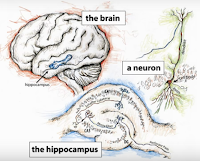
Modern medicine and nutritional science are no longer separate paths—they increasingly intersect in ways that profoundly influence health outcomes. For American women especially, the synergy between diet and prescription medications is becoming more recognized as a critical element of effective healthcare. At https://365scriptcare.com/, we recognize and support this vital intersection through our comprehensive prescription referral services.
Nutrition and Medication: A Powerful Synergy
A U.S. survey revealed that 61% of women believe nutrition plays a significant role in how effective their medications are. This growing awareness highlights a crucial point—what we eat can either support or interfere with the treatments we rely on.
Whole-food nutrition, particularly diets rich in fiber, lean protein, and anti-inflammatory compounds, has been shown to:
- Improve drug metabolism by supporting liver enzyme function
- Reduce systemic inflammation, which can hinder recovery and medication absorption
- Prevent nutrient depletion caused by long-term medication use (e.g., B12 loss with metformin)
Integrating proper nutrition helps the body not only absorb nutrients better but also tolerate prescription medications more efficiently. For example, women managing chronic conditions like hypertension, diabetes, or autoimmune disorders can significantly benefit from a nutrient-dense diet that complements their treatment plans.
Real-World Benefits for Women in the U.S.
In the U.S., nearly 1 in 4 women over the age of 40 is on multiple prescription medications. This means the opportunity to maximize therapeutic outcomes through dietary support is both widespread and urgent. Nutrition is especially important in women’s health issues such as hormonal balance, osteoporosis prevention, and cardiovascular wellness.
Some of the most effective nutrition strategies include:
- Eating foods high in magnesium and omega-3s to improve mood and support heart health
- Consuming leafy greens and cruciferous vegetables to help balance estrogen levels
- Avoiding high-sugar and high-sodium diets that can interfere with blood pressure and cholesterol medications
These dietary guidelines don’t replace medications but work hand-in-hand with them to boost their effects and reduce side effects.
A growing body of U.S.-based clinical research supports these principles. For instance, a study from the National Institute on Aging found that women following a heart-healthy diet while on statins had a 35% greater reduction in LDL cholesterol than those relying on medication alone.

Nutrition Support for Women’s Health
The relationship between diet and medication is particularly pronounced when it comes to chronic condition management and hormonal regulation. Health professionals across the U.S. increasingly support the view that food is not only fuel but a tool for better therapeutic results.
When examining diet and medication synergy, several themes emerge:
● Best foods for hormonal balance:
Flaxseeds, avocados, fatty fish, and fermented foods can help regulate estrogen and progesterone, especially in women managing PCOS or menopause symptoms.
● Diet for chronic condition management:
A Mediterranean-style diet has been widely recognized in the U.S. for reducing the impact of metabolic syndrome, arthritis, and other inflammatory conditions.
● Women’s heart health nutrition:
Foods like oatmeal, lentils, berries, and olive oil support heart health and complement the action of medications like statins or blood pressure drugs.
● Diet and medication synergy:
According to the American Diabetes Association, approximately 15 million women in the U.S. are living with diabetes or prediabetes—many of whom rely on medications like metformin, insulin, or GLP-1 agonists. Whole foods can improve drug metabolism, reduce systemic inflammation, and prevent nutrient depletion such as B12 deficiency caused by long-term metformin use.
A balanced diet can improve medication adherence by minimizing side effects and increasing
patients’ sense of well-being. It also promotes long-term sustainability of treatment outcomes.
Women’s Heart Health Nutrition in Focus
Heart disease remains the leading cause of death for women in the U.S., but it’s often underdiagnosed. Diet plays a vital role in managing risk. Guidelines from organizations like the American Heart Association encourage diets high in whole grains, legumes, healthy fats, and lean protein to improve cardiovascular function, which in turn supports better outcomes when paired with prescription medications.
In fact, data from the American Heart Association shows that over 80% of premature heart disease and stroke cases are preventable through lifestyle changes, including healthy eating. This positions nutrition not as an accessory but as an essential pillar of health management.
At 365 Script Care, we recognize the importance of this synergy. Our prescription referral services ensure you have access to affordable medications, while also advocating for a holistic view of health where nutrition supports recovery and long-term wellness.
The Role of Supplementation and Personalized Care
While whole-food diets are foundational, certain populations, especially women with absorption issues or chronic conditions, may require additional supplementation. For example:
● Calcium and Vitamin D
are critical for women at risk of osteoporosis
●Iron and folate
are essential during pregnancy and menstruation
● Omega-3 fatty acids
offer anti-inflammatory benefits and support brain and heart health
It’s important to consult with healthcare providers when incorporating supplements, especially if you are on prescription medications. Some supplements can alter the absorption or effectiveness of drugs. For example, calcium can interfere with thyroid medication absorption if taken too closely together.
Lifestyle Factors That Enhance Treatment Outcomes
Nutrition doesn’t act in isolation. The overall lifestyle—sleep, stress management, hydration, and physical activity—interacts with both food and medication. Women who combine a nutritious diet with regular physical activity report a 40% greater improvement in overall wellness when managing conditions such as depression, arthritis, and high blood pressure.
Other key components include:
● Hydration:
Essential for medication absorption and metabolic function
● Regular exercise:
Enhances cardiovascular health and insulin sensitivity
● Sleep hygiene:
Impacts hormonal balance and immune function
●Mindfulness practices:
Shown to reduce inflammation and stress markers
This integrated approach reflects the direction of modern healthcare: holistic, patient-centered,
and informed by evidence.
Frequently Asked Questions (FAQs)
Q: How does nutrition affect prescription medications?
A: Nutrition plays a key role in how your body absorbs and responds to medications. A balanced, whole-food diet can improve how drugs are metabolized, reduce side effects, and support overall treatment success.
Q: Are there specific diets that support women’s health?
A: Yes. Diets rich in omega-3s, fiber, and antioxidants—such as the Mediterranean diet—are known to support hormone regulation, heart health, and metabolic balance, making them especially beneficial for women.
Q: Can food help reduce medication side effects?
A: Yes. Choosing nutrient-dense, anti-inflammatory foods may help reduce common medication-related side effects like nausea or bloating, while also promoting digestive and immune health.
Q: Is nutrition advice included in 365 Script Care services?
A: 365 ScriptCare is a prescription referral service, not a nutrition or telehealth provider. While we do not offer formal nutritional guidance, we strongly support integrating healthy lifestyle practices, including balanced nutrition, to enhance overall wellness and complement your treatment plan.
Closing Thought:
Supporting your health goes beyond prescriptions. At 365 Script Care, we empower women to take charge of their wellness by ensuring access to affordable medication while encouraging lifestyle choices—including nutrition—that amplify health outcomes. Start your journey to better health today with trusted, accessible care.
Disclaimer
The Content is not intended to be a substitute for professional medical advice, diagnosis, or treatment. Always seek the advice of your physician or other qualified health provider with any questions you may have regarding a medical condition.
Disclaimer: This story is auto-aggregated by a computer program and has not been created or edited by healthlydays.
Publisher: Source link











